Public Audit and Post-legislative Scrutiny Committee
Annual Report 2016-17
Introduction
This report covers the work of both the Public Audit Committee and the Public Audit and Post-legislative Scrutiny Committee during the parliamentary year from 12 May 2016 - 11 May 2017.
The Public Audit Committee was established on 8 June 2016. On 27 September 2016 the Chamber passed a motion to extend its remit to include post-legislative scrutiny and the Committee's name was adjusted accordingly.
The Public Audit and Post-legislative Scrutiny Committee questions whether public funds are spent wisely and holds those who are charged with spending taxpayers’ money to account. The primary focus of the Committee’s work is the examination of reports produced by the Auditor General for Scotland (AGS) and its remit allows it to consider matters of wider public audit policy.
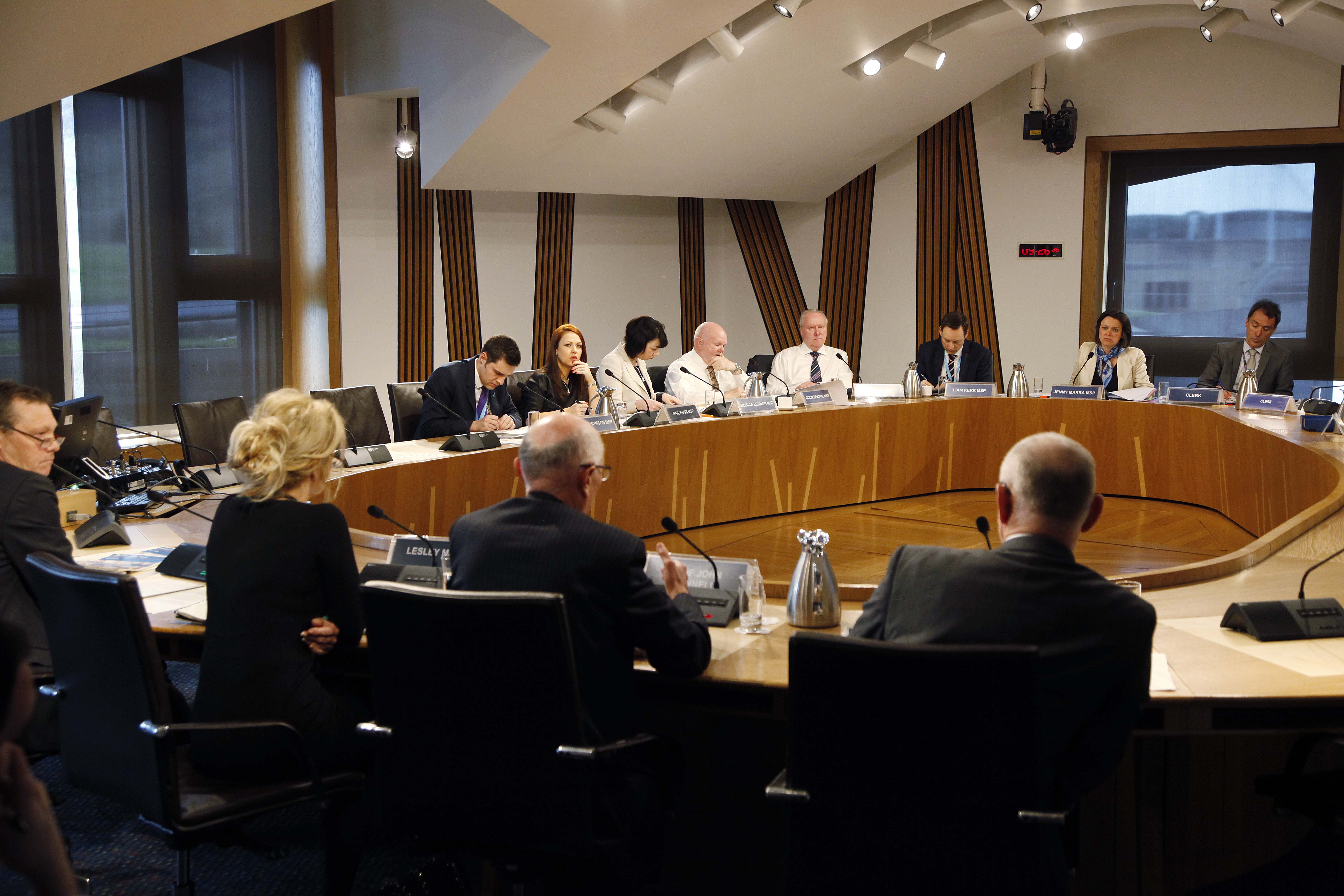
Membership changes
Previous Members of both the Public Audit Committee and the Public Audit and Post-legislative Scrutiny Committee during the reporting year:
Jenny Gilruth (from 8 June 2016 - 6 September 2016)
Alison Harris (from 8 June 2016 - 17 November 2016)
Gail Ross (from 6 September 2016 - 30 March 2017)
Under Rule 12.1A of Standing Orders, Jackie Baillie was appointed as a temporary committee member by a motion of Parliament on 30 March 2017. She was chosen as Acting Convener on 20 April 2017 and will be in post until 20 October 2017. Jenny Marra remains the committee Convener while on parental leave.
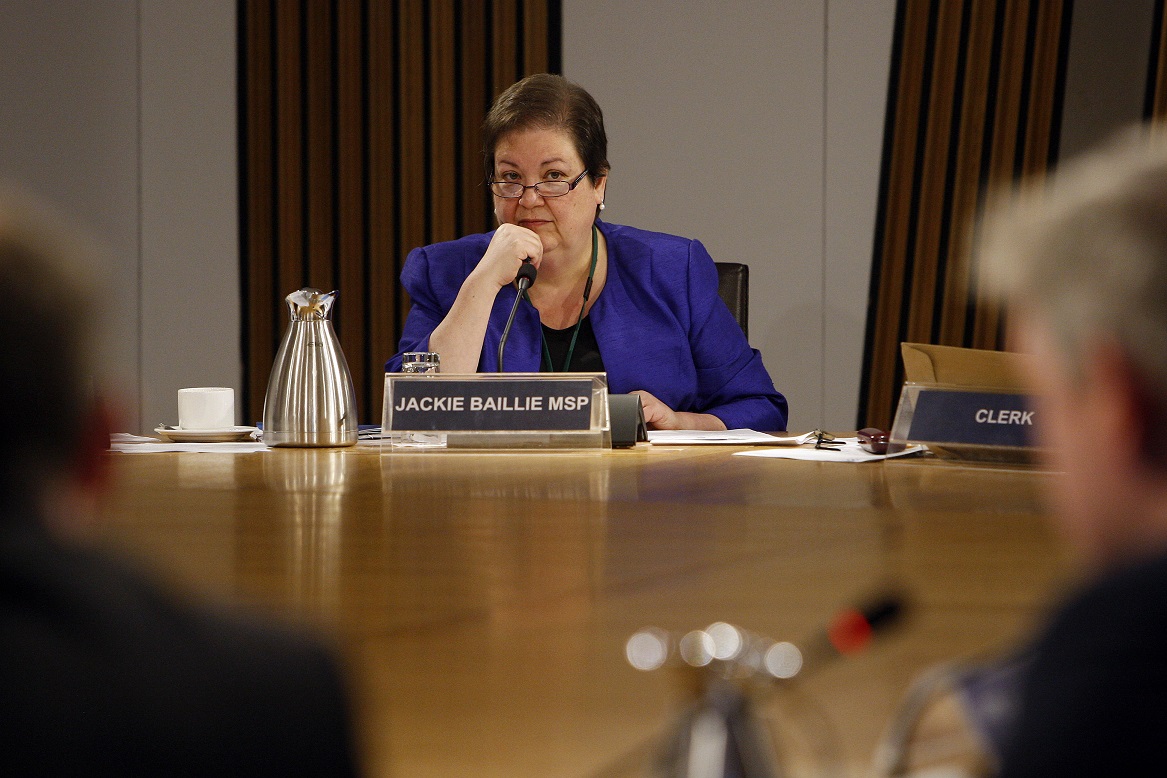
Inquiries and reports
We considered 17 new reports from the AGS, 10 of which were ‘Section 23 reports’i which examined the economy, efficiency and effectiveness of the public sector. Seven were ‘Section 22 reports’ii which concerned the audit of accounts of individual public bodies. We took oral evidence from the AGS and/or Audit Scotland officials on each report. We also considered one Accounts Commission report, one Audit Scotland report, and one Comptroller & Auditor General report.
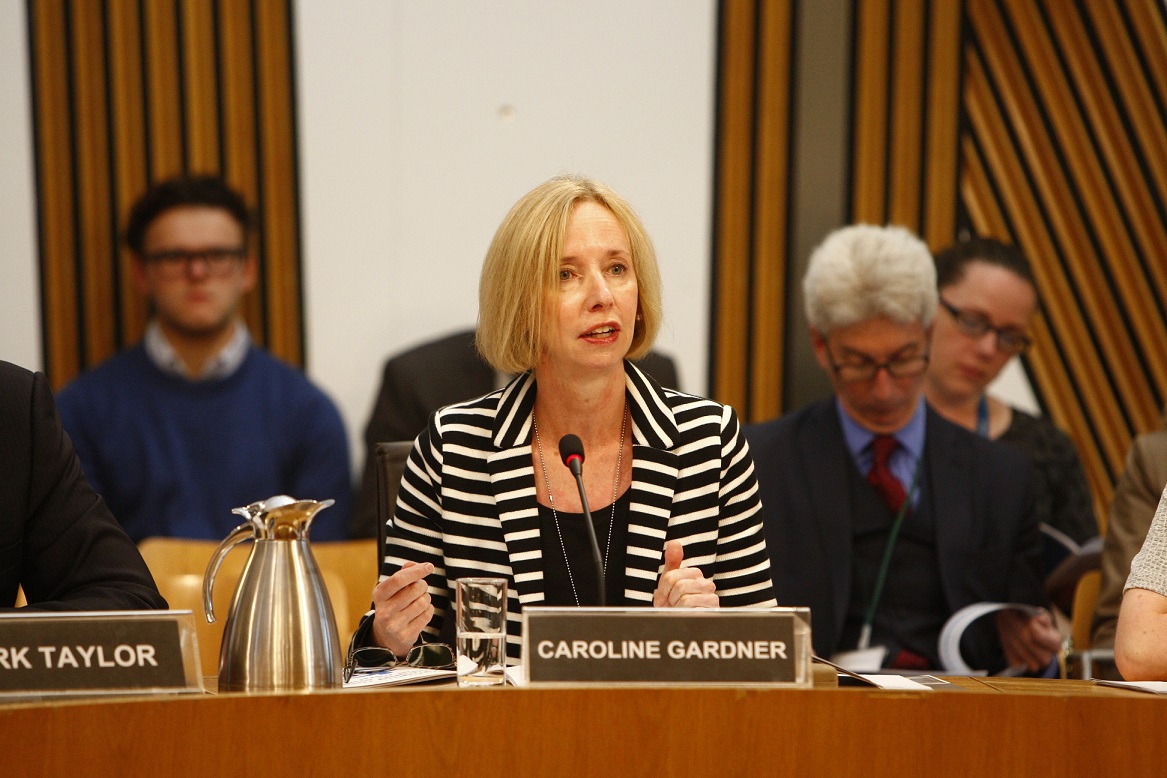
We consider each AGS report in public and, where there is a need to take further evidence, we ensure that our scrutiny is robust and in-depth. We question relevant officials closely on how they will act on the AGS’ recommendations and how they will ensure that lessons are learned. We have made great efforts to work in partnership with other committees so that our scrutiny adds value. Looking ahead, we will aim to identify whether there are any recurring issues arising from AGS reports that may suggest a wider problem or challenge for the public sector. We will also try to ensure that the work of committees and Audit Scotland is more joined up so that, above all else, we can continue to make recommendations for improvements to public services.
Having set out some of the principles that inform our work, we provide specific examples of our scrutiny below.
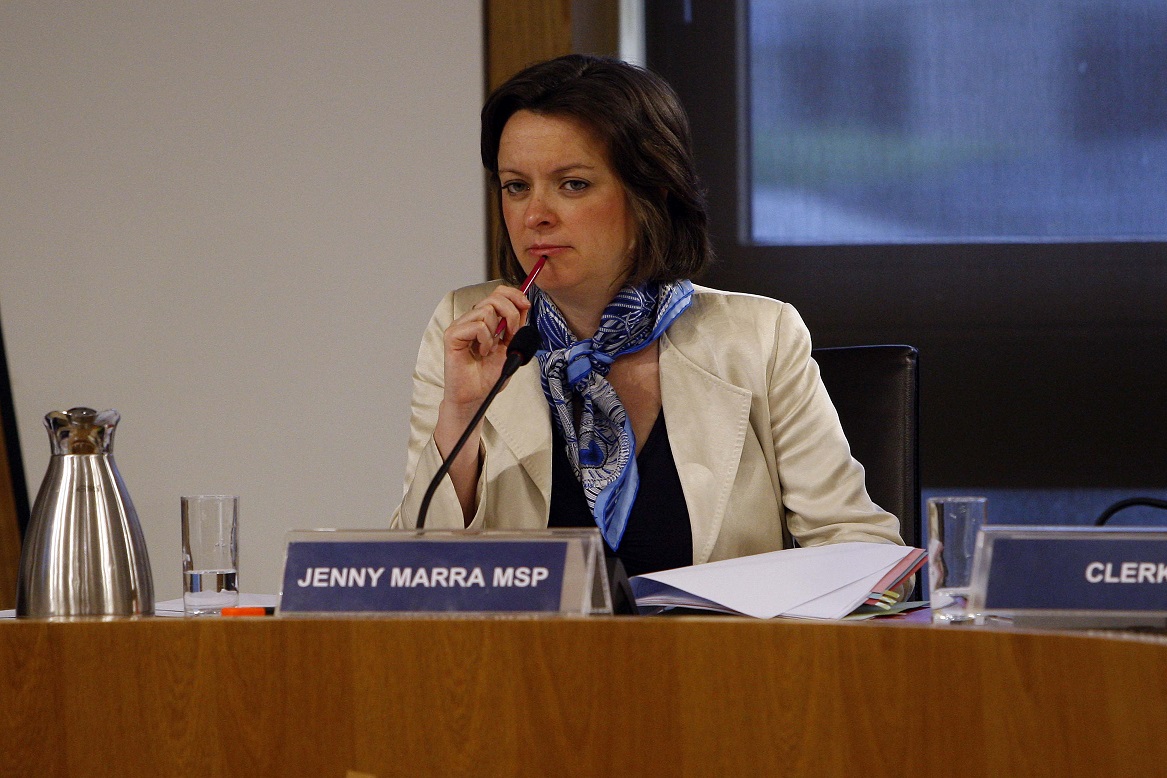
Section 22 reports
We highlight first the outcomes resulting from our scrutiny of particular Section 22 reports below (full details of our work on each report are available on our website):
This report highlighted issues of governance and financial sustainability at the Scottish Police Authority (SPA). Our sessions with the Scottish Government, Police Scotland, the chief executive and board chair of the SPA, current and former SPA board members and Her Majesty's Chief Inspector of Constabulary in Scotland (HMICS) focused on the governance issues. As a result of our scrutiny, HMICS brought forward a review of the openness and transparency of the SPA, and the SPA board chair wrote to us to confirm that committee chairs would have the discretion to hold all or part of their meetings in public.
We concluded our work by writing to the Cabinet Secretary for Justice to say that the SPA Board Chair's behaviour towards a former board member had been inappropriate, and to highlight our concerns about transparency and collective responsibility. Our work was covered extensively by the media, helping to demonstrate to the public how we hold public bodies and officials to account. We also worked closely with our colleagues on the Justice Sub-Committee for Policing, who also scrutinised the SPA, by highlighting issues from the evidence that we considered to be worthy of further scrutiny.
Witnesses from the Scottish Police Authority and Police Scotland giving evidence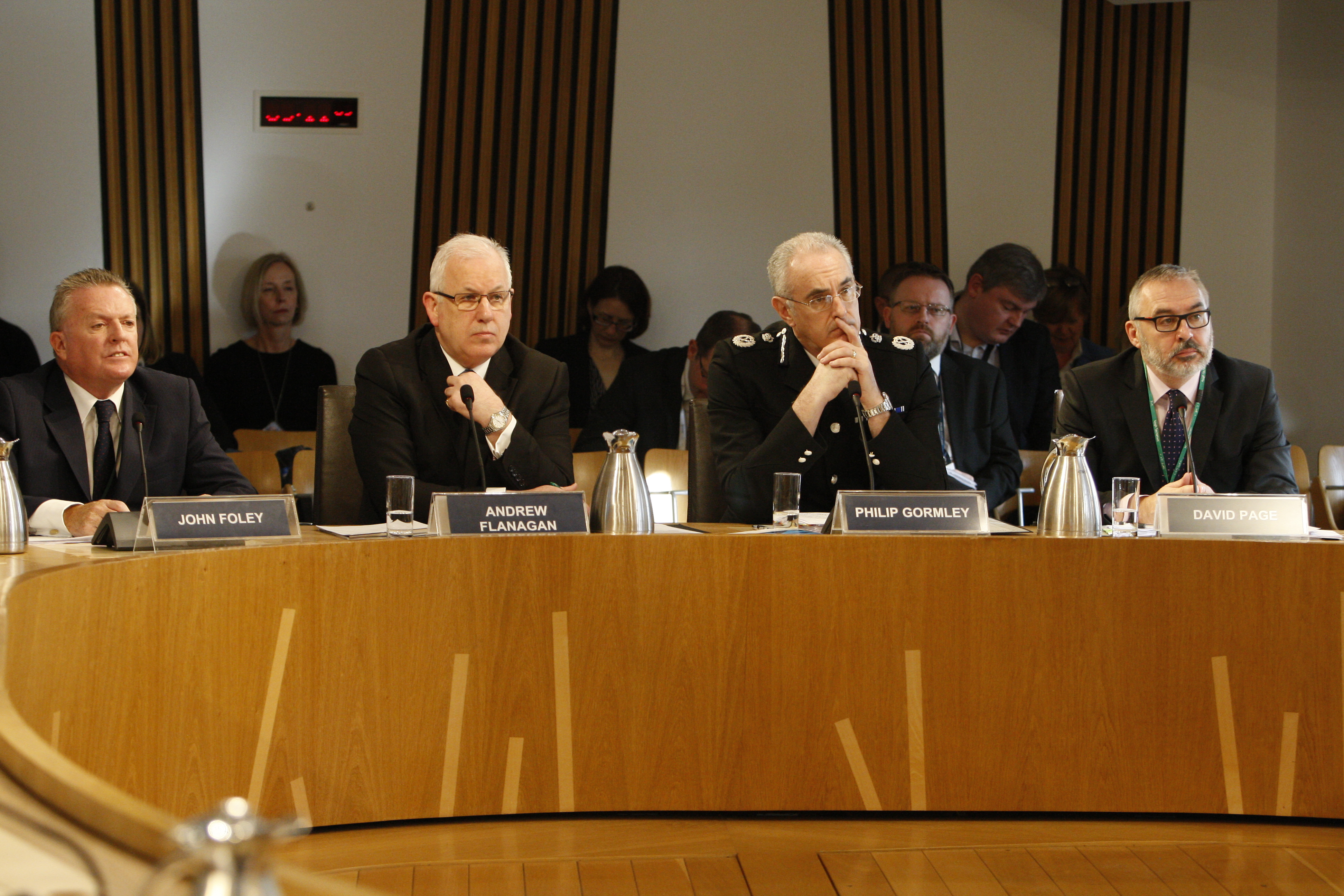 Andrew Cowan
Andrew CowanThis report highlighted concerns about the current and future finances of NHS Tayside, which has needed Scottish Government loans (also known as ‘brokerage’) for a number of years. We held an external meeting in Dundee to take evidence from local patients' groups and NHS Tayside, and followed this up with further evidence sessions with both the Scottish Government and NHS Tayside. We repeatedly stated that local services must not suffer as a result of these financial difficulties.
Thanks to our intervention, the Scottish Government established an independent Assurance Advisory Group to challenge and advise the health board on its one-year and five-year financial plans, which we ensured were made available for public scrutiny. We also successfully persuaded the Scottish Government to bolster the Group’s financial expertise. Given wider concerns raised, we wrote to both the Cabinet Secretary for Health and the Scottish Government to challenge the funding formula used for health boards and the use of brokerage.
The Committee taking evidence from NHS Tayside in Dundee City Chambers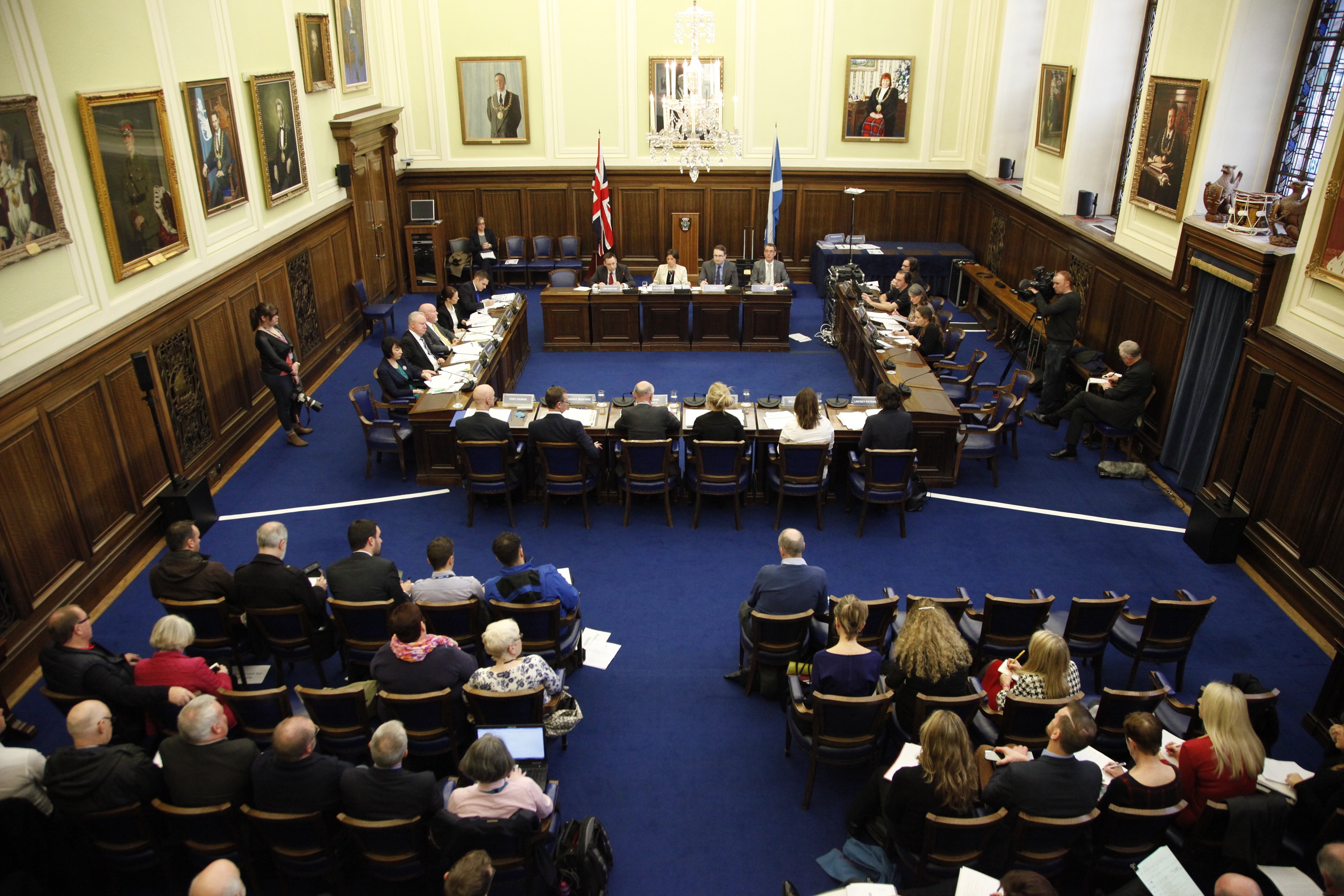 Andrew Cowan
Andrew CowanThis report provided a summary of the Scottish Government's overall financial position for 2015/16. After taking evidence from the Permanent Secretary, we were concerned that up to £14 million of public money from European Structural Funds could be lost due to problems or errors with individual projects. We therefore repeatedly challenged the Scottish Government to provide further information on this matter and to assure us that similar problems would not be encountered in future years.
Section 23 reports
In this section we highlight the outcomes resulting from our scrutiny of particular Section 23 reports (again, full details of our work are available on our website):
This report summarised the difficulties faced by the Scottish Government in processing CAP payments to farmers and crofters. Given the seriousness of our concerns we sought public assurances from the head of the Scottish Government, the Permanent Secretary, that satisfactory progress on payments was being made.
We further escalated our involvement by requesting monthly progress updates from the Scottish Government, which we have shared widely. We have also worked closely with Rural Economy and Connectivity Committee colleagues to ensure coordinated scrutiny, and wrote jointly to the Cabinet Secretary to register our dissatisfaction with the manner in which our committees were being updated.
Permanent Secretary Leslie Evans giving evidence to the Committee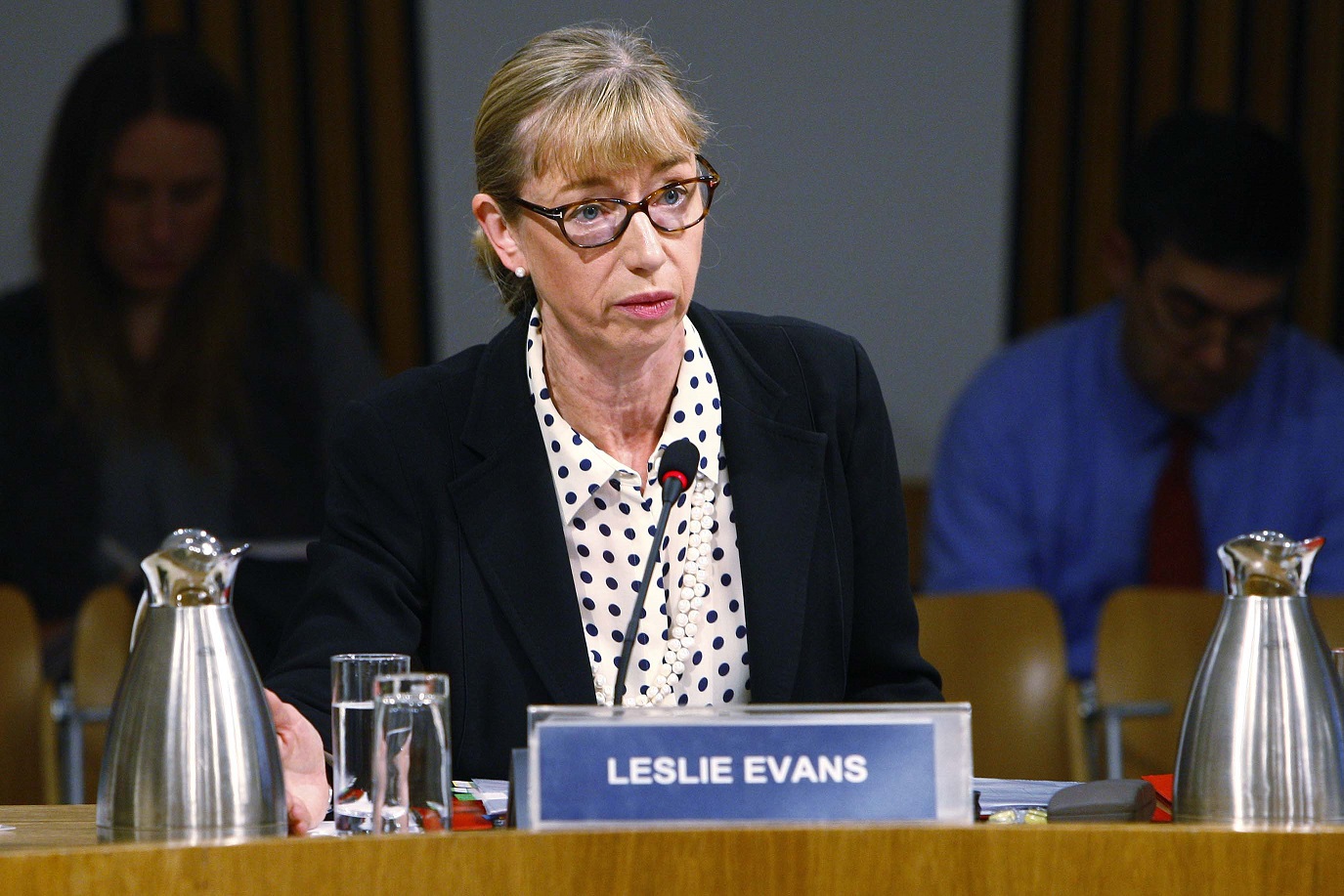 Andrew Cowan
Andrew CowanWe scrutinised Scottish Government and other officials on these reports separately then agreed to take further oral evidence from the Cabinet Secretary for Education and Skills. It is very unusual for us to take evidence from Scottish Government ministers, but we considered that the policy issues raised in evidence required our scrutiny to be escalated. The evidence session led us to write to the Education and Skills Committee, to set out policy issues (such as the demand for university places and the Scottish Funding Council's role in regulating colleges) that we considered worthy of further scrutiny.
Cabinet Secretary for Education and Skills, John Swinney MSP, giving evidence to the Committee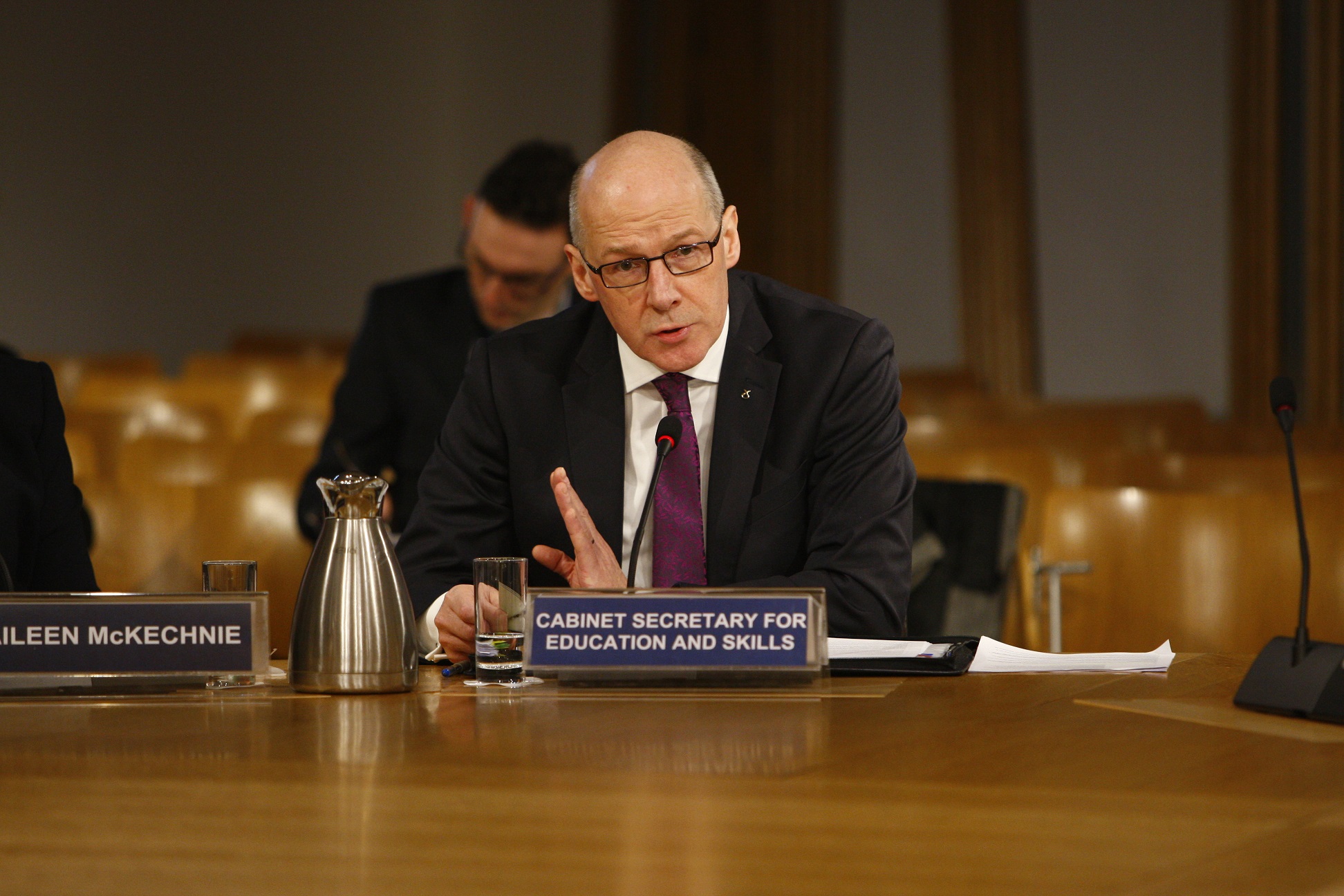 Andrew Cowan
Andrew CowanThis joint AGS/Accounts Commission report followed up on reports from 2004 and 2011 on Scotland's road network. After taking evidence from the Scottish Government and Transport Scotland, and being aware of the Scottish Government's review of the national transport strategy, we highlighted our concerns to the Rural Economy and Connectivity Committee to inform its scrutiny of the strategy.
This report summarised the reasons for the failure of Police Scotland's i6 programme, yet another public sector IT project which faced challenges. We requested very detailed evidence from the Scottish Police Authority, to try to understand what the failure of the system meant for policing in Scotland and how lessons could be learned for the future. The Justice Sub-Committee for Policing is also considering i6, and we worked closely to share information so that our combined scrutiny was more effective.
Other work
We started this session by exploring potential gaps in the audit landscape, and wrote to the Auditor General for Scotland to ask some fundamental questions about the nature of public audit. The reply from the AGS can be read here.
We have also built on work arising from commitments given by the Scottish Government and others to our predecessor committee. We continue to consider biannual Major Capital Projects progress updates, and an annual report on settlement agreements in the public sector. We have suggested changes to the information included in the Major Capital Projects progress updates, and have asked questions about the increased numbers of settlement agreements.
Every year, the UK's Comptroller and Auditor General reports on Her Majesty's Revenue and Custom (HMRC)'s administration of the Scottish Rate of Income Tax (SRIT). The AGS provides assurance on that report. Having taken evidence from the National Audit Office (NAO) and the AGS, we will soon question the HMRC as to how it made errors in identifying Scottish taxpayers and how differential tax rates in Scotland and the rest of the UK could affect the administration of SRIT.
With one year's experience of considering audits, we are now in a position to look at common and recurring themes arising from reports and, potentially, to take forward work on particular topics, such as governance, that cut across committee remits.
Engagement and innovation
Working closely with Audit Scotland and the Auditor General, we aim to bring about improvements in the public services provided to millions of people living in Scotland. Our work focuses on holding to account those very senior officials who are personally held responsible for spending public money in an efficient manner. We use Audit Scotland reports as the basis for this scrutiny and our opportunities to engage with the public are therefore far more limited than other committees’. That said, whenever we have had a chance to involve the public in our work we have made every effort to do so.
Our remit now includes post-legislative scrutiny. In recognition of the external demand for such scrutiny, we have agreed to invite suggestions for future work from members of the public and stakeholders.
Our scrutiny of the National Fraud Initiative (NFI) exercise led to our decision to undertake our first ever piece of post-legislative scrutiny, on the legislation underpinning the NFI. We issued a call for evidence and have agreed to take evidence from local authorities, audit bodies from across the UK and the Scottish Government to help identify whether any legislative or policy changes are needed.
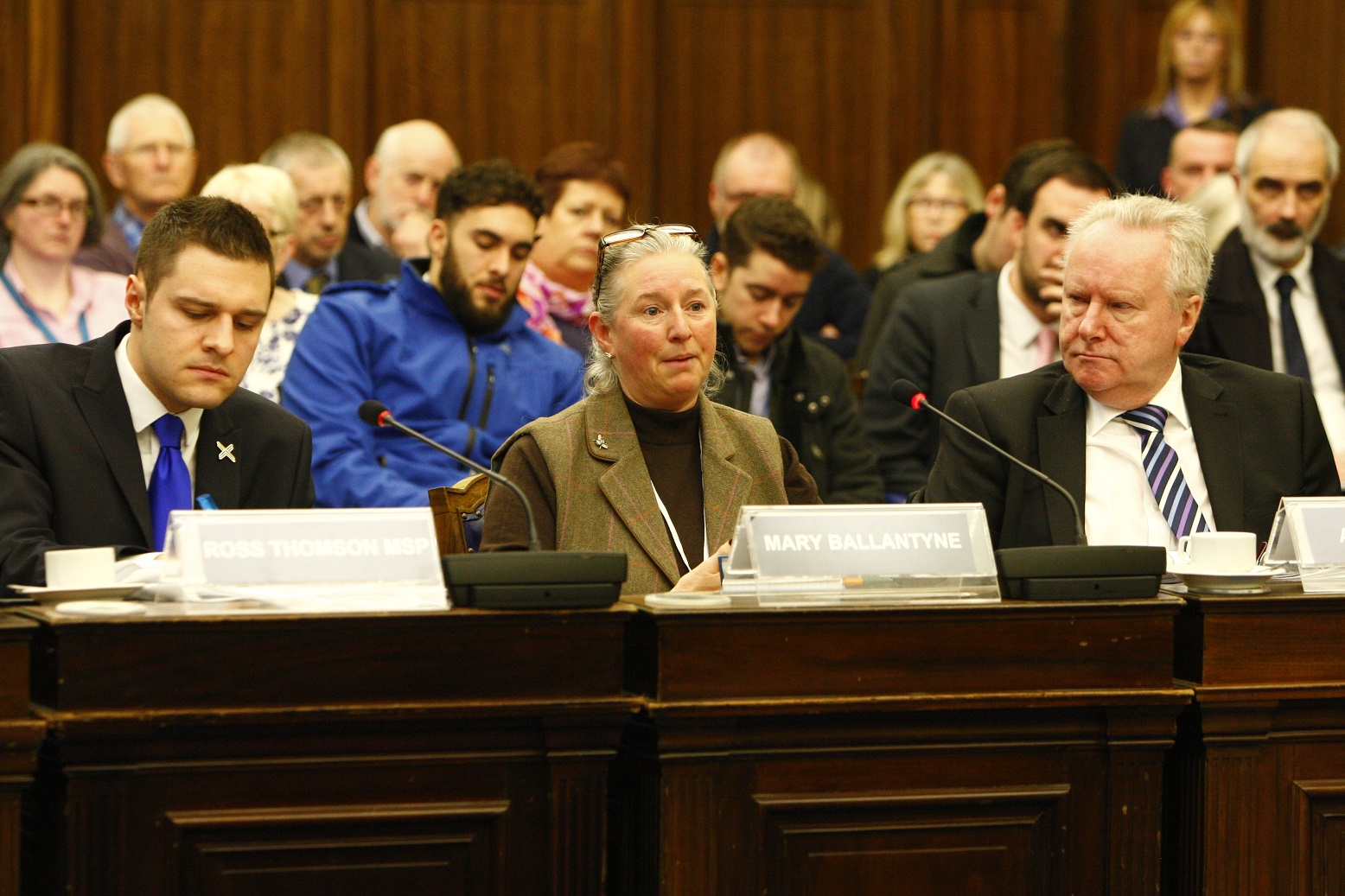
We have noted the significant financial pressures facing NHS Tayside and have repeatedly stressed that local service users and employees should not suffer as a consequence. We considered it vital to include their views in our scrutiny of the board and held a committee meeting in Dundee to hear directly from local patients' groups and trade unions. These groups provided evidence in front of the most senior NHS Tayside officials, which we immediately followed up with those officials.
Our external meeting in Dundee also provides a good example of how we have pro-actively used broadcast videos and worked with the media to increase awareness of our work. We ensured that those who use NHS Tayside's services were aware that the Parliament was taking action to scrutinise their local health board's finances and safeguard services.
Our Twitter account now has over 1,000 followers, an increase of approximately 400 since our predecessor committee’s last annual report. We now "live tweet" our evidence sessions to increase our visibility and encourage public scrutiny and debate. Our tweets are often complemented by retweets and live coverage from national and local media. We also use our account to circulate committee correspondence and Official Reports and videos of our meetings, to demonstrate how we try to bring about improvement.
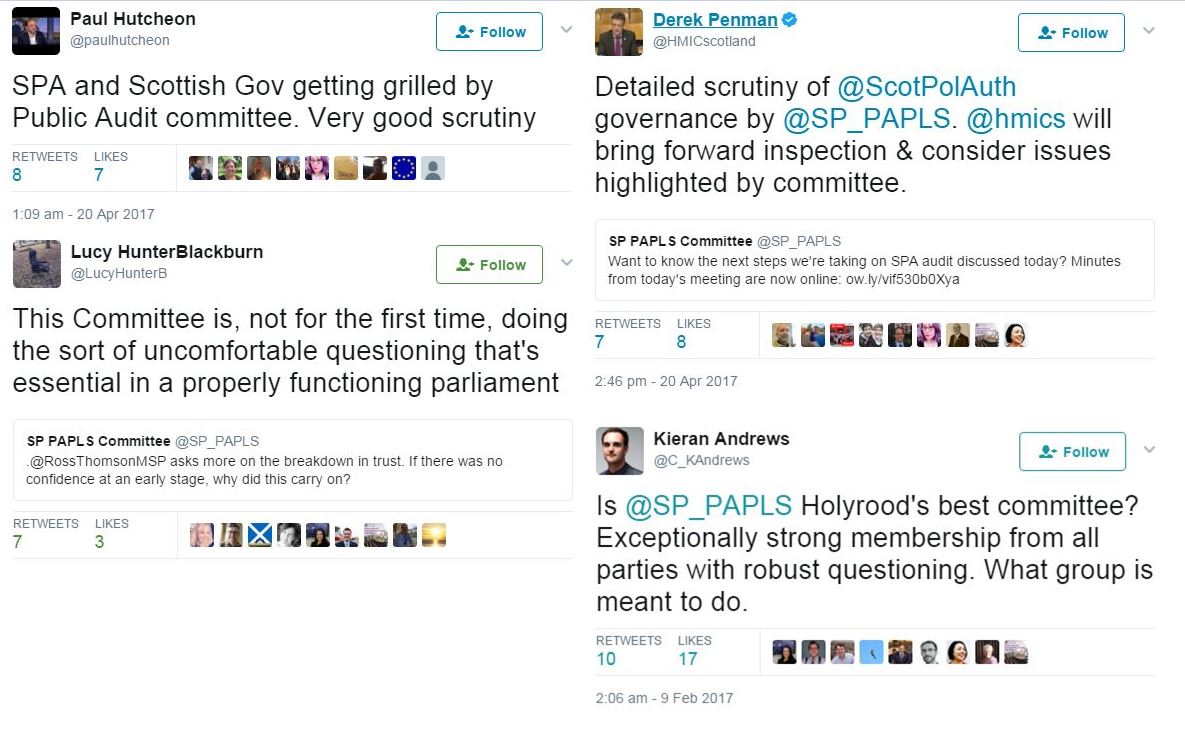
Bills and UK legislation
We do not usually consider Bills and have not had the opportunity or occasion to comment or influence UK legislation. However, we have written to both the Scottish Government and the UK Government asking for an update on the audit and accountability arrangements for bodies affected by the Scotland Act 2016.
Equalities
Audit Scotland builds diversity and equality into its national performance audits. Audit Scotland’s Audit Management Framework requires it to consider any potential equalities issues at the scoping stage of each of its performance audits. Audit Scotland briefings to the Committee reflect any particular impacts of policies on equalities groups, ensuring that any potential equalities issues can be picked up by members in considering how to take forward the recommendations in AGS reports.
We have also built consideration of equalities issues into our scrutiny of particular reports. For example, we noted in our letter to the Cabinet Secretary for Justice that the board of the Scottish Police Authority was male-dominated, and that there was a clear need for the board to improve its diversity. When considering the colleges overview report, we challenged the Scottish Government and Scottish Funding Council on their collective failure to undertake an equality impact assessment of college reforms in 2009, a failure for which they apologised.
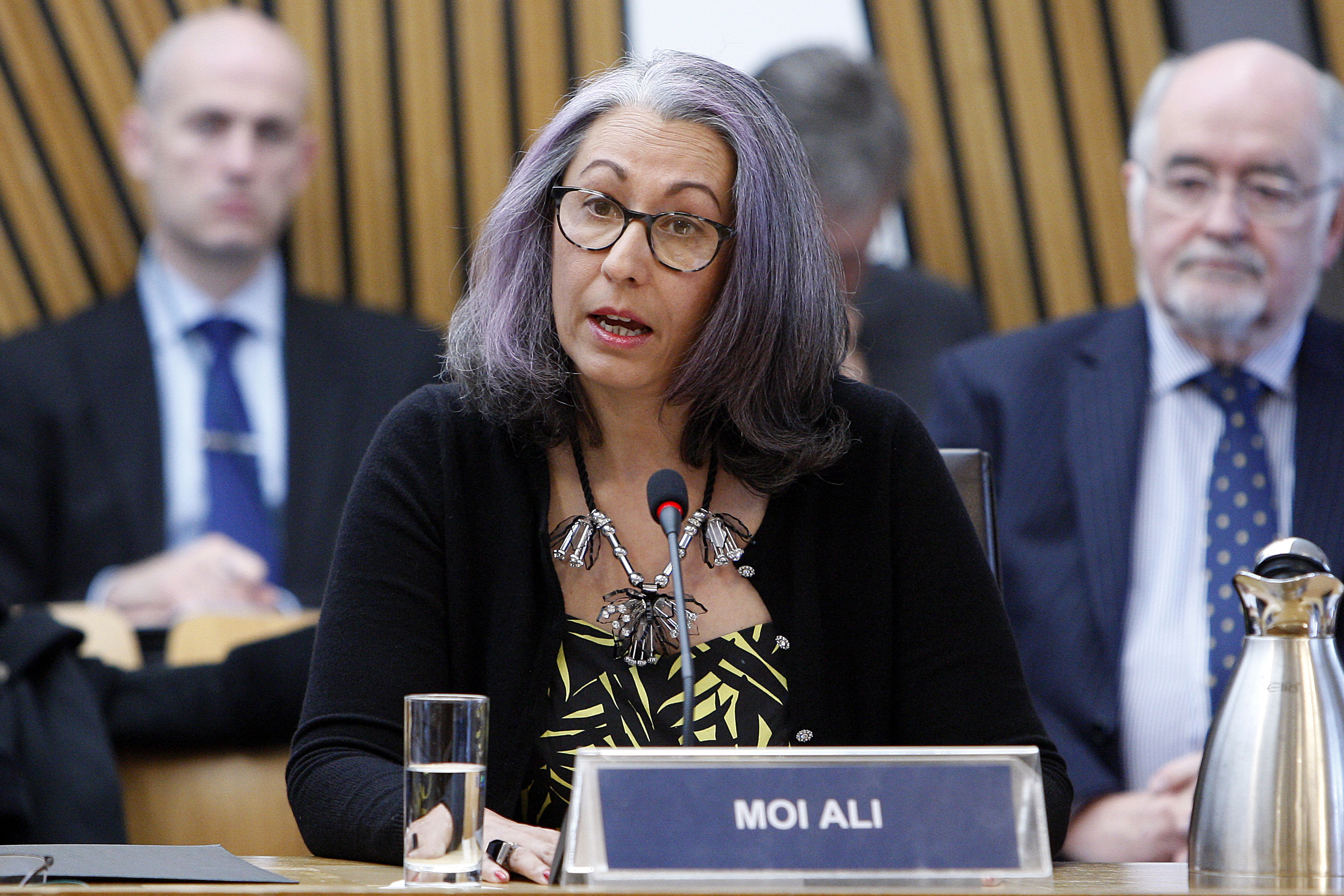
Meetings
We met 26 times in this Parliamentary year. 25 of these meetings were held in the Scottish Parliament, and one meeting was held in Dundee City Chambers. 22 meetings were held partly in public and partly in private, 3 meetings were held wholly in public and 1 meeting was held wholly in private. The purpose of the majority of private items was to consider the approach to specific AGS reports (e.g. to consider which witnesses to request oral or written evidence from) or to consider our work programme.